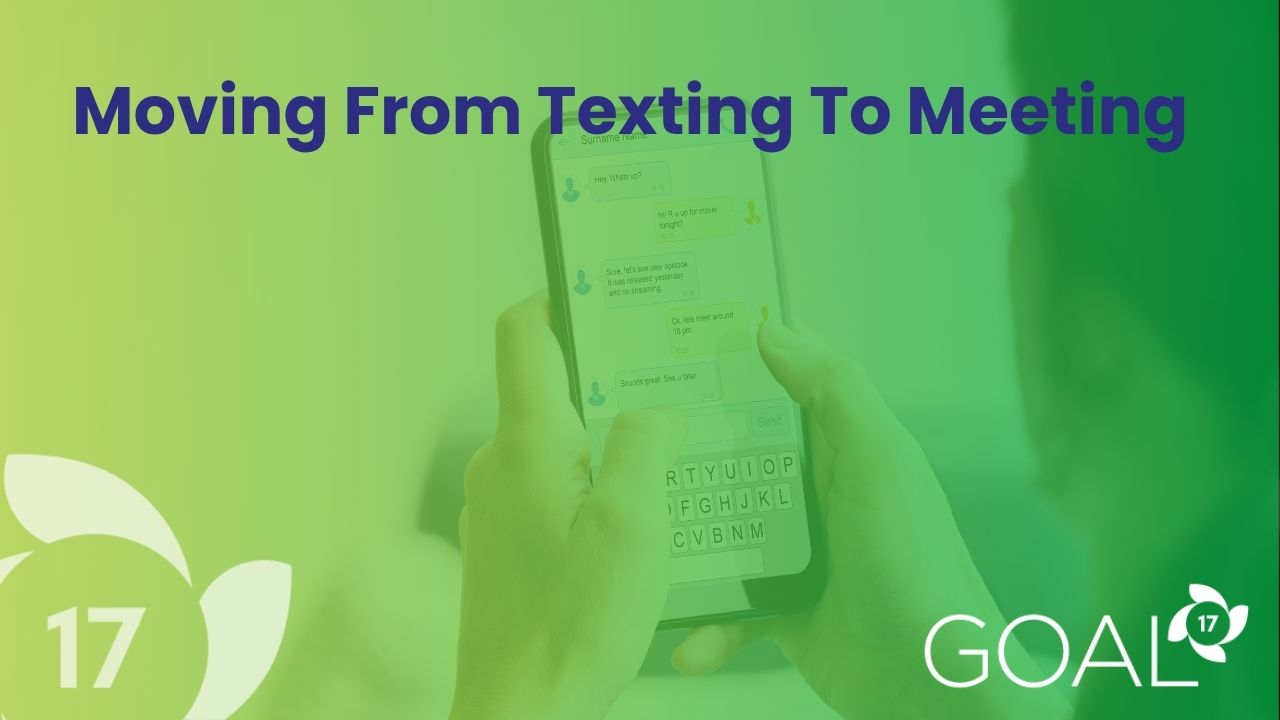Moving from Texting to Meeting
Oct 24, 2025
Most mentoring partnerships with young people start with texting - it’s comfortable, flexible, and suits many young people’s routines. After an initial exchange, some mentees will be raring to meet in person, excited to deepen the connection beyond the screen. Others, however, may be more cautious. They want to get to know you a bit first, and that’s perfectly OK.
Whatever the pace, there are ways to make this transition from texting to meeting as smooth and supportive as possible.
Why Some Young People May Hesitate
Meeting in person can feel like a big leap, especially for those who are used to digital connections. Young people might feel wary for lots of reasons:
- Past experiences with adults: They might have experienced disappointment, rejection, or even harm from trusted adults. Meeting someone in person can feel like taking a significant emotional risk.
- Control and safety: Texting allows them to reply at their own pace, think before responding, and maintain physical distance if needed. It's their safe space.
- Social anxiety: Face-to-face interaction requires different skills and can feel more exposing. Some young people may not feel equipped for meeting in person.
- Fear of judgment: A young person might be worried about how they look, speak, or behave - concerns that feel less pressing in text conversations.
It’s important to remember this caution isn't about you - it's protective, not personal. Some young people have had to learn to be careful about who they trust, and that's actually a healthy survival strategy.
Helpful Dos and Don’ts
✅ Do use open, non-pressuring language:
- “I’ve really enjoyed our chats - if you ever fancy meeting up for a coffee or walk, just let me know. Totally up to you!”
❌ But don’t make it sound urgent:
- Avoid: “We really need to meet soon,” or “It’d be much better if we met up.”
✅ Do keep options open:
- “Texting is great, and I’m happy to keep it this way for as long as you like. Meeting is always an option, but only if and when it feels right for you.”
❌ But don’t imply texting isn’t ‘real’ mentoring:
- Avoid: “We can't really get to know each other properly through texts.”
✅ Do give control:
- “If you decide you want to meet sometime, you can choose where feels most comfortable for you.”
❌ But don’t push or keep asking:
- If your mentee isn’t ready, respect that. Occasionally remind them the door is open - but don’t nag!
✅ Do acknowledge feelings:
- “It’s normal to feel unsure about meeting face to face. Lots of people feel a bit nervous about it!”
❌ But don’t guess or judge the reasons for hesitation:
- Avoid: “Don't be shy,” or “There's nothing to worry about.”
Sometimes, Digital Communication is Best
While we want to encourage you to meet in person, we also need to recognise that brilliant mentoring relationships can be built through digital communication. Some mentees may:
- Continue to prefer texting for the entire relationship.
- Meet occasionally but maintain texting as the primary communication.
- Find voice and/or video calls a comfortable middle ground.
- Need significant time before feeling ready for face-to-face meetings.
For you, it might feel natural and important to meet in person as soon as possible, but remember - it isn’t essential. The goal is to provide meaningful support in whatever form works best for the young person. And if perhaps digital communication feels a little alien or uncomfortable for you, well – it's good to learn a new skill, right?!
Be Mentee-Led, Always
The golden rule is to always let your mentee lead. Your job is to let them know that meeting up is possible, but there’s absolutely no rush or pressure. They are in control.
For many young people, every small step forward - whether it's a slightly longer text conversation, sharing something more personal, or eventually meeting for coffee - represents significant courage on their part.
Letting the mentee lead is not only the kindest approach, it’s also the most effective for building meaningful, lasting mentoring relationships.
You might also enjoy this article about Conversation Starters With Your Mentee.
